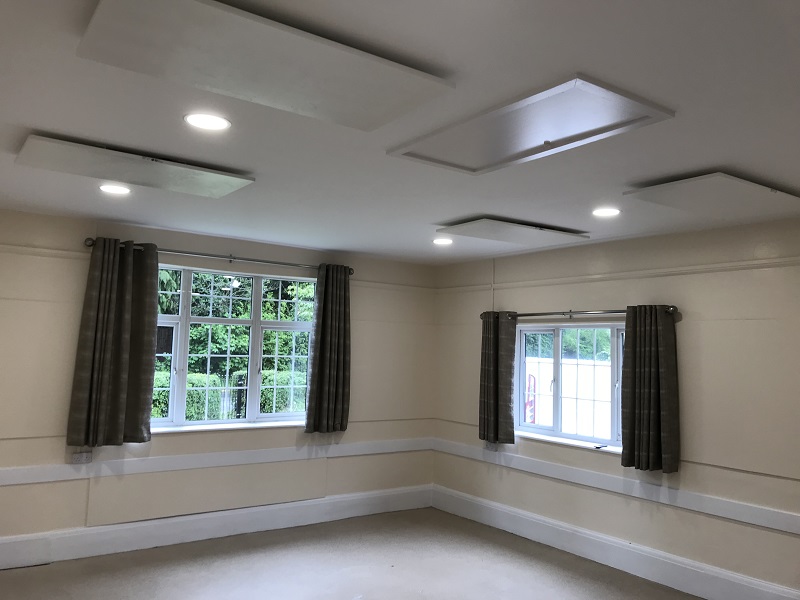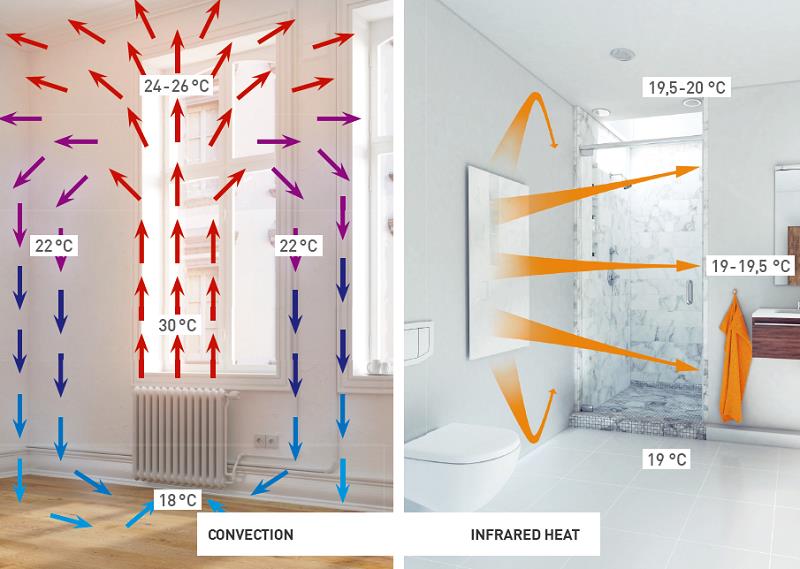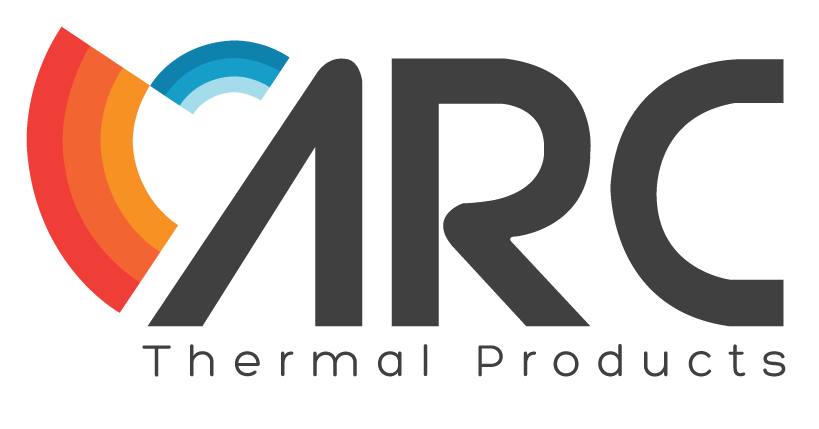Infrared is completely natural, 100% safe and good for our well-being. Infrared enables life to exist on our planet and our bodies have evolved to naturally absorb and emit it.
Keep heaters out of harms way
The directional heating effect of Infrared heaters and the fact there is no ongoing maintenance, means the installation position is very flexible.

In Village halls, just like any publicly accessible building, health and safety is a key issue and hot radiators/heaters at ground level present a significant risk, especially when the hall is used by nursery groups and for children’s parties. The ability to place infrared heating on the ceiling is a great solution and gives complete peace of mind.
Heating from above moves the heating devices out of the occupied zone, and in doing so:
- Removes the risk of burn injuries
- Prevents any accidental damage to the heater
- Ensures optimum distribution of heating throughout the space
- Avoids cold spots
- Keeps the floor space free for seating and activities
Health benefits
- Reduced transmission/circulation of viruses, allergens and dust
- Cleaner atmosphere – more pleasant and easier to breathe in
- Improved circulation and reduced aches and pains
- Superior thermal comfort with no ‘cold spots’
- Health problems associated with damp, mould and condensation are reduced
- and more…
Reduce airborne transmission of COVID-19

Precautions to reduce the airborne transmission of COVID-19 in closed environments include increasing ventilation with outdoor air and reducing air circulation. These measures are part of a larger strategy that also includes social distancing, wearing face masks, surface cleaning, hand washing and other precautions.
How do you increase building ventilation without losing the heat?
In buildings without mechanical ventilation systems, guidance recommends opening windows wherever possible.
Unfortunately, opening windows even for 10 minutes in every hour to introduce fresh air into the room presents a problem when it comes to convection heating systems. The warm air produced by convector heaters will quickly escape through the open windows leaving the occupants feeling the cold. This leads to higher energy consumption/running costs as the convector heaters have to run continuously to replace the lost warm air.
The only viable option to keep people and the room warm is to use infrared heating. This technology produces an electromagnetic wave that directly warms people and objects instead of heating the air. The infrared rays are absorbed by the skin, immediately creating a pleasant feeling. Walls and furniture also serve as a storage medium and gradually give off heat to the room, thus the energy produced by an infrared heater is retained within the thermal mass of the room and not lost through the open windows.
A study by Bedford and Liese also demonstrated that people directly warmed with infrared heating feel 2-3 degrees warmer than the actual room temperature, a fact that helps to compensate for the lower room temperature from having the windows open.
How do you reduce air circulation in large rooms?
Convection heaters work by heating the air which circulates around the room either by convection or mechanical means so warming the surroundings. This movement of air facilitates the spread of viruses, allergens and aerosol/dust particles.
In contrast, infrared heating transfers energy by means of electromagnetic waves which travel inertly through air generating heat only when they strike an object. In effect, all surfaces in the room become radiant heaters. This creates an evenly distributed temperature throughout the space preventing convection currents from forming.

Studies by the Hermann Rietschel Institute for Heating and Ventilation Technology at the Technical University of Berlin demonstrated that infrared heating does not cause air movement like convectional heating systems.
Cleaner air
Traditional heating methods rely on convection currents to move the warmed air around the room and provide thermal comfort for the occupants. These currents move not only air, but also dust particles and other allergens, a fact that can cause issues for people who suffer with asthma, allergies or other respiratory problems.
Choosing LAVA Infrared heating means there is no unwanted movement of air, which creates a more pleasant environment.
Stable humidity
Infrared heating maintains a stable humidity of 45%-55% which avoids dry skin normally associated with convection heating.
Contact lenses are also less prone to drying-out in rooms heated with infrared.
Improve peripheral circulation
Physiotherapists have used infrared for many years to treat stiffness, painful joints and muscular aches. It works by promoting better circulation in the body, encouraging healing blood cells towards the site of the pain.

